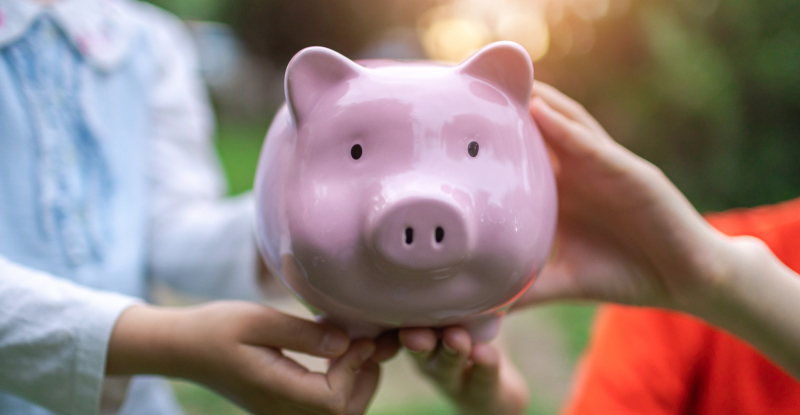
Some parents wait until their kids are almost teenagers to start teaching budgeting. But experts will tell you that you can start to lay the groundwork from a much earlier age.
“It’s so critical, especially at a very young age, to expose kids to very simple financial scenarios,” says CPA Roshan Quraishi, financial consultant, William Osler Health System in Brampton and a financial literacy volunteer. “If you develop the knowledge at an early age, it will pay huge dividends.”
Ages three to five: Teach saving and spending basics
Lessons don’t have to be complicated at first. CPA Leigh Sindlinger, accounting manager with Bell Lumber and Pole in Vernon, B.C., often teaches budgeting to kids in school.
“There are different aspects to budgeting. Sometimes it’s a matter of understanding how much something costs and whether they have the money to pay for it,” she says. “As they get older, you start to incorporate other pieces, such as saving for something bigger that they can’t buy with one month’s allowance.”
Although there are lots of great financial technology apps and tools available, the tried-and-true piggy bank concept is still a great way for young kids to learn about saving. “You can design your own,” says Quraishi. “Get cans [or jars] and make labels so they can put in money for spending, saving and sharing.”
CPA Jean-Marie Chan Kin, founder/principal of Money Coach JM in Toronto, says you can start having money jars for kids as early as three years old. “You want to teach them that money is not infinite,” he says. “They can see it grow when they save and go down when they spend.”
Quraishi has also started teaching his five-year-old son very simple concepts by sitting down with him and putting together grocery lists. “I show him the list of what I want to purchase and then we do quick searches to find where I can get the best price,” he says. “Savings apps such as Flipp are great for that.”
Ages seven to eight: Open a bank account
“Start with a basic savings account,” says Quraishi. “Then look into getting other accounts when they get older. Make sure that whatever account you open has no service fees.”
When you’ve opened both a savings and spending account, you can layer on more concepts. “My golden rule when teaching kids is, try and put at least 10 per cent of the money they get into a savings account,” Sindlinger recommends.
There are also fun and simple ways to teach kids about investments as they get a bit older. They can put some of their savings in a GIC or a single stock share and experience what happens when it goes up and down, says Chan Kin.
Age 12 and up: Make it real
Sindlinger often shares the story about an important life lesson her mother taught her when she turned 12. “She had enough of me constantly asking her to buy me things, so she started giving me $25 a week and said, ‘That’s it. I’m not buying you things anymore.’ I learned how to fit things in my budget throughout my teens. That was a huge learning experience that I started with my daughter when she turned 12.”
Another important lesson when working with students is instilling the impact of cash, she adds. “It’s really important to understand that emotional attachment to money. When you buy something and use cash, you feel that loss - I’m giving you my $10 and I don’t have it anymore. You simply don’t get that when you’re not working with cash.”
Chan Kin offers one final word of advice when it comes to financial literacy: “Be a role model. Children learn from what they observe.”
Keep the conversation going
To help kids learn about everything from the cost of owning a pet to managing a credit card, check out CPA’s free financial literacy workshops. You can also pick up a copy of CPA Canada’s book Raising Money-Smart Kids. Plus, try introducing technology to your weekly chore chart and allowance payments and learn how to prevent your kids from making in-app purchases without permission.
Denise J. Deveau is a Toronto-based freelance writer specializing in business and technology related topics.
Originally published Sept. 20, 2021, at CPA Canada.



